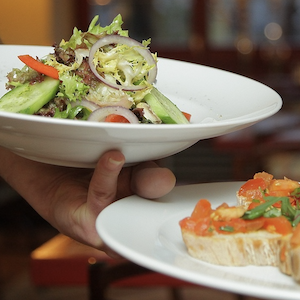4 Shocking Lawsuits Against Baby Brands Every Parent Should Know About
By Jo Phillips
You love your baby more than anything. You want the best for them. This means you’ll do anything to keep them safe and healthy.
But what if the products you trust to care for your baby harm them? It’s a scary thought, but it’s happening more often than you think. Lately, there has been a sharp rise in lawsuits against major baby product manufacturers. These legal actions reveal issues that every parent should be aware of.
Image unsplash.com/
Here are four shocking lawsuits that deserve every parent’s attention.
#1. The Heavy Metal Contamination Scandal
One of the most alarming revelations in recent years involves baby food contamination. Several major brands faced lawsuits for allegedly selling products with dangerous levels of heavy metals. These metals, including lead, arsenic, and mercury, can pose serious health risks to infants.
CNN reports that researchers tested 288 foods from local stores and farmers markets across the US. These include grains, fruits, vegetables, snacks, and teething foods. Results indicate over 91% of commercial baby foods and home-cooked purées from purchased raw products had discernible traces of at least one heavy metal. The study also reveals that 90% and 65% of commercial food products contained lead and arsenic, respectively.
In addition, over 62% of commercial food products had cadmium and 7% had mercury. This discovery led to multiple lawsuits against brands like Gerber, Beech-Nut, and Earth’s Best Organic.
Parents have raised concerns about potential links between these contaminants and developmental issues. Some have even filed a baby food autism lawsuit, claiming a connection between heavy metal exposure and autism spectrum disorders.
Over 70 such lawsuits have been filed across the country. TorHoerman Law states that multidistrict litigation (MDL 3101) is created to unify these lawsuits. While research is ongoing, these cases highlight the need for stricter safety standards in baby food production.
#2. Microplastics in Baby Bottles
Another unsettling lawsuit involves baby bottles. Popular brands are being sued over claims that their products leach microplastics into milk and formula.
Studies have shown that when polypropylene bottles are exposed to heat, tiny plastic particles can dissolve into the liquid. These microplastics, though invisible to the naked eye, could pose health risks to infants, particularly when consumed over long periods.
According to a Reuters report, lawsuits filed in 2024 claim that bottles from brands like Philips Avent and Dr. Brown release harmful levels of microplastics. These tiny plastic particles could potentially harm infants’ developing bodies. Forbes states that bottle-feeding an infant (using a polypropylene bottle) could expose him to millions of microplastics.
This revelation has sparked concerns about long-term health effects and calls for safer alternatives.
#3. Talc Baby Powder Lawsuit
The talc baby powder lawsuit is perhaps the most well-known of these cases. For years, Johnson & Johnson’s baby powder was a staple in many households. However, this product has been at the center of a massive legal battle over claims that it contains asbestos, a known carcinogen.
Thousands of women have initiated lawsuits after developing ovarian cancer over years of using the powder. In addition, USA Today reveals that over three dozen attorneys general have taken the company to court. In 2024, Johnson & Johnson consented to a $700 million settlement to resolve these lawsuits. While the company maintains its products’ safety, it has since switched to cornstarch-based baby powder.
This long-running legal battle underscores the importance of being informed about potential risks in everyday baby products. It also highlights how scientific understanding of product safety can evolve.
#4. Costco Baby Wipes and PFAS
Even seemingly harmless products like baby wipes aren’t immune to controversy. In 2024, Costco faced a class-action lawsuit over its Kirkland Signature baby wipes. The lawsuit claims these wipes contained significant levels of PFAS, also known as “forever chemicals.”
PFAS are synthetic compounds that remain forever in the environment or the human body. They’ve been linked to various health issues, including developmental delays in children, weakened immune systems, and even certain cancers. Additionally, the lawsuits allege that the company failed to disclose their presence, which unknowingly exposed babies to these chemicals.
USA Today reported that Costco agreed to a $2 million settlement and committed to reformulating its wipes to be PFAS-free. This case serves as a wake-up call for parents to scrutinize even the most basic baby care products.
The Broader Impact of These Lawsuits
These lawsuits highlight a troubling reality: products marketed as safe and essential for babies may carry hidden risks. For parents, this is a call to action to become more informed consumers. The legal battles have already led to a shift in consumer behavior. Now, more parents are opting for organic or eco-friendly alternatives and demanding transparency from manufacturers.
The ripple effects of these lawsuits may also bring about regulatory changes. Companies may be required to conduct more rigorous testing and disclose potential risks more clearly. For parents, staying informed and advocating for safer products can help protect future generations from similar dangers.
People Also Ask
Q1. How can I check if my baby’s products are safe?
Look for certifications from organizations like JPMA or ASTM. Research product recalls on the CPSC website. Read ingredient lists carefully, and avoid products with chemicals you cannot pronounce. Stay updated on safety news and consumer reports. When in doubt, consult your pediatrician for recommendations.
Q2. Are organic baby products safer?
Not necessarily. While organic products often have fewer pesticides, they can still contain natural toxins. “Organic” doesn’t guarantee safety from other issues like choking hazards or manufacturing defects. Always research thoroughly and consider multiple factors when choosing baby products.
Q3. What should I do if I think a baby product is unsafe?
Stop using the product right away. Submit your concerns to the manufacturer and the Consumer Product Safety Commission. Keep the product for potential evidence. Consult your pediatrician if you’re worried about your baby’s health. Stay informed about any resulting recalls or lawsuits.
These four lawsuits are a crucial reminder that not all baby products are as safe as they seem. As a parent, you need to stay vigilant and informed about the products you bring into your home.
By keeping up with legal developments and scrutinizing the ingredients in baby products, you can help ensure your child’s safety. Always remember: your child’s health is worth the extra effort.



